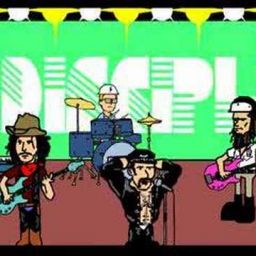Interested in finding the right wine or electing the right candidate? Look no further than comics! Kami no Shizuku (The Drops of the Gods), a Japanese manga series is influencing wine purchases across Asia, and the U.S. has had Stephen Colbert as a Marvel superhero comic book presidential candidate.
As mentioned in articles in the Japan Times and the International Herald Tribune (then reprinted in the New York Times with new photos), Kami no Shizuku has been one of the factors in increasing wine consumption across Asia, including a twenty percent increase in Japan. Specific wines also increase sales after being mentioned — Colli di Conegliano Rosso Contrada di Concenigo saw an increase of 30 percent in sales.
But there have been unpredictable consequences of the sommelier suggestions, including
there was so little demand for Burgundy that even top hotels did not bother stocking it. But after the comic extolled Burgundy’s virtues, stores and hotels scrambled to secure stocks, which immediately sold out.
The main character, Shizuku Kanzaki, describes a 2001 Bordeaux from Château Mont Perat as
“It’s powerful but it also has a meltingly sweet taste, with an acidic aftertaste that catches you by surprise. It’s like the voice of Queen’s lead vocalist [Freddie Mercury], sweet and husky, enveloped in thick guitar riffs and heavy drums.”
The idea of a well-received wine-based manga is not strange within the general context of manga. While in the U.S., comics are viewed as the domain of children, in Japan (and increasingly with South Korea’s manwha) manga is read across the age spectrum, with specialty publications, based on gender and interest. For example, there are two successful transmedia franchises based on tennis, one for boys, Prince of Tennis, and one for girls, Ace o Nerae!.

never before has a real-life person been able to keep himself in the narrative for so long without it being a paid product-placement arrangement
The differences between reality and fiction are striking:
Last October the comedian announced on his show, “The Colbert Report,” that he was running for president. The crats declined to put the entertainer on their primary ballot, and Mr. Colbert didn’t pay the Republican’s $35,000 fee to get on their ballot.
Mr. Colbert’s candidacy .. was integrated into Marvel’s fictional landscapes with bumper stickers, T-shirts and billboards … in at least 19 of its titles, including “She-Hulk,” “X-Men: Manifest Destiny” and “Secret Invasion.” [He also appeared] as a walking, talking cartoon character in an eight-page insert in “Amazing Spider-Man”.
But the interaction between the reality and fiction leads to an interesting result, with this example of authorized real-person fanfic leading to increased sales for Marvel.
Blurring the line between fiction and reality leading to real-world economic impact has every indication of increasing. It’s interesting to note how much has changed since the guest star as him/herself era to improve rankings in the 70s. I’m looking forward to how this will impact rights of publicity versus creating an accurate/reality-based fictional universe — will licensing increase or will disclaimers? And what happens if instead of increasing sales or viewership, negative statements within the fictional universe have a negative economic impact, such as a negative wine review in Kami no Shizuku?


